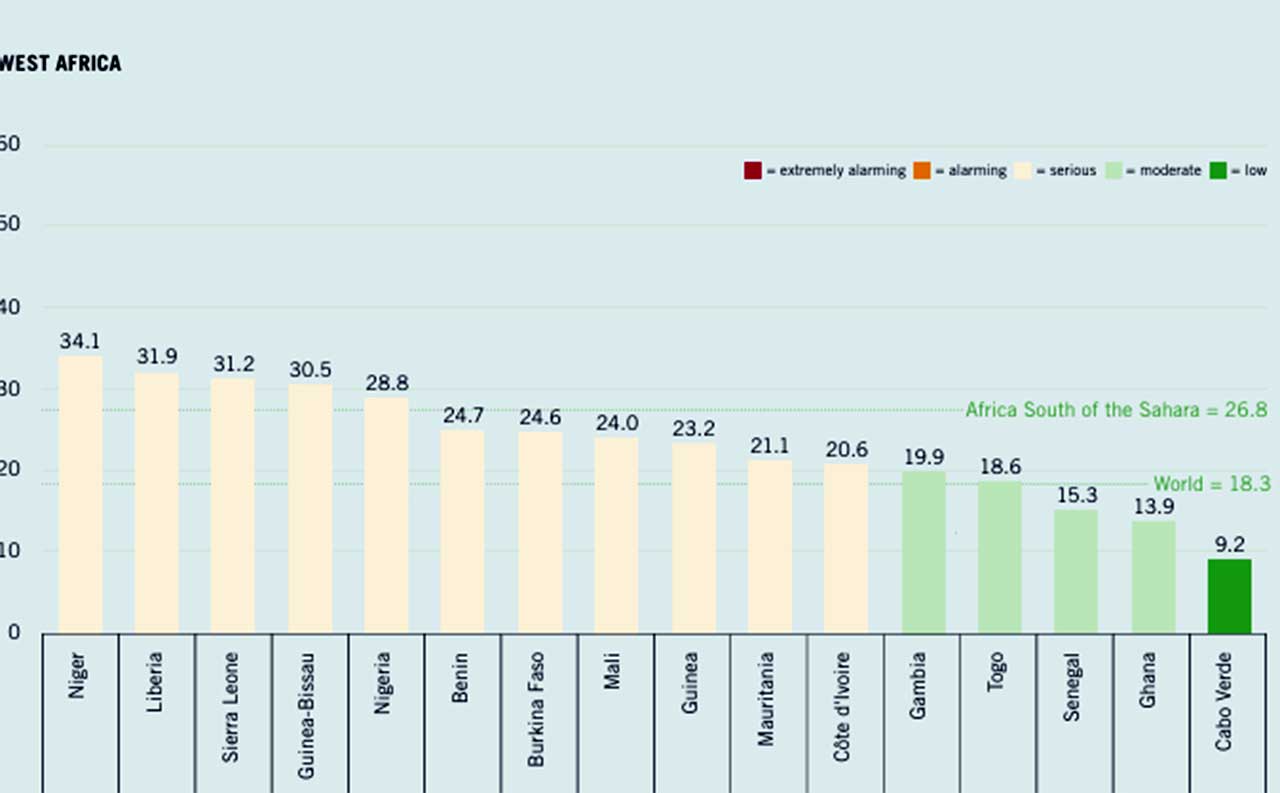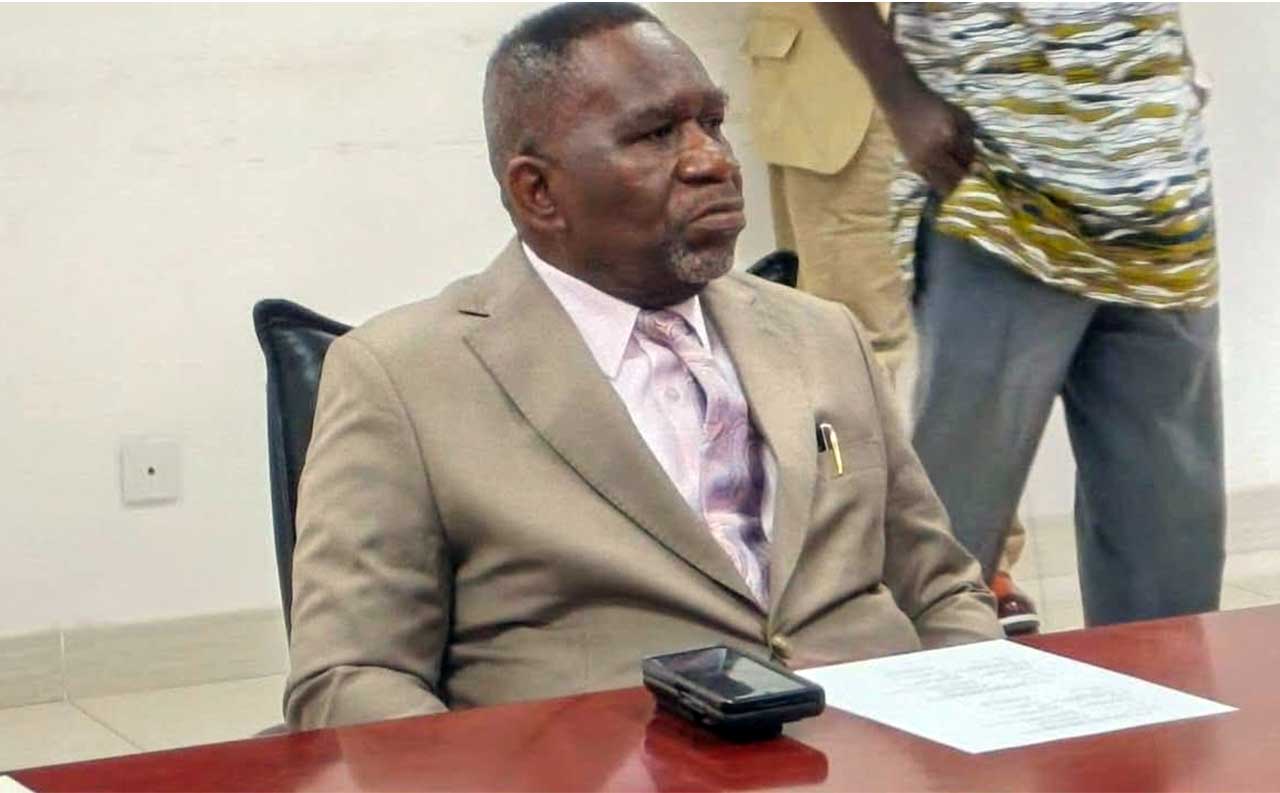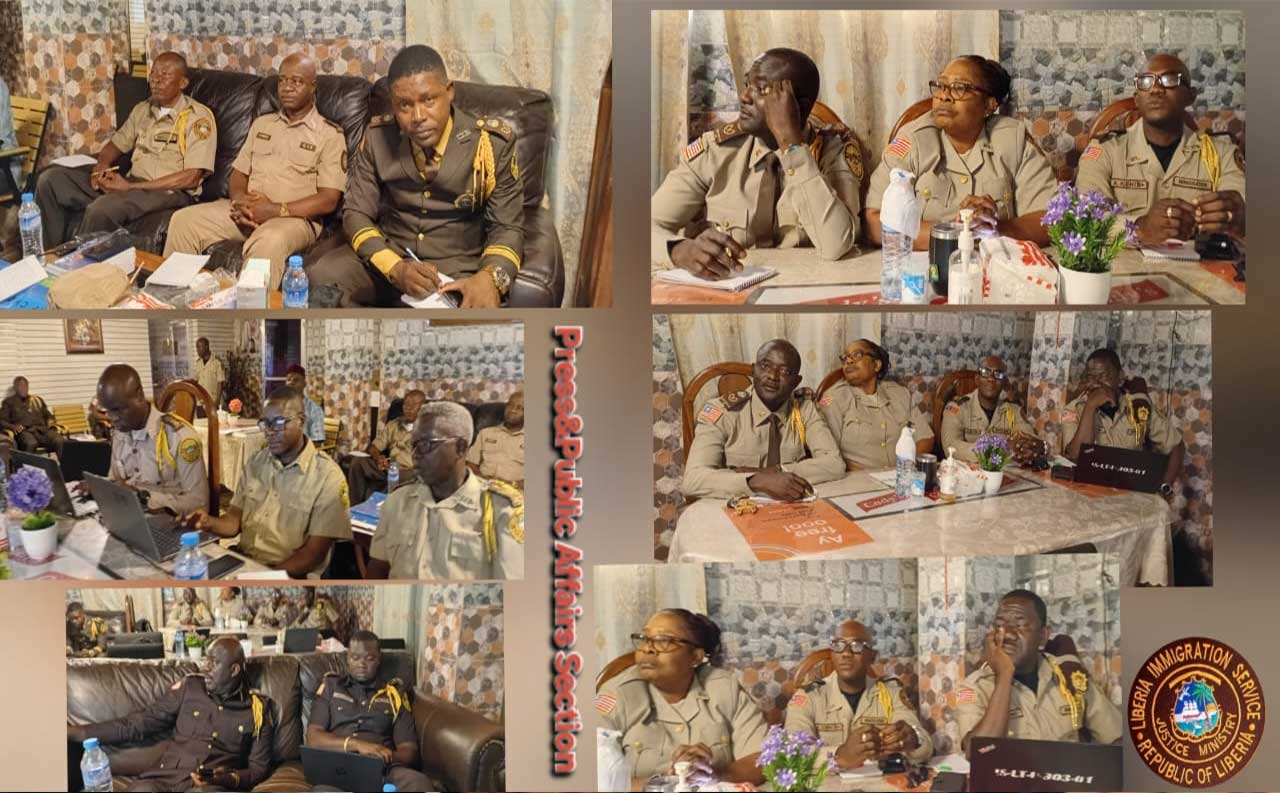A renowned human rights advocate, Titus B. Pakalah, is urging the Government of Liberia through President Joseph N. Boakai and the Ministry of Agriculture to launch a civil society reference working group on food security to immediately address the 2024 Global Hunger Index (GHI), which puts Liberia hunger at 31.9, categorizing the hunger level as “serious.”
Speaking with our reporter, Wednesday, May 21, 2025, Pakalah pointed out that key findings from the Global Hunger Index shows that approximately 38.4% of the population is undernourished.
He explained that Liberia’s Sexual and Reproductive Health (SRHR) Focal Person further disclosed that the report shows that Child Stunting is around 29.8%, which indicates that 29.8% of children under five are stunted, indicating chronic malnutrition. “According to the 2024 Global Hunger Index (GHI), Liberia has a GHI score of 31.9, categorizing the hunger level as “serious.
“Child Wasting: About 3.4% of children under five suffer from wasting, reflecting acute undernutrition. Child Mortality: The under-five mortality rate stands at 7.3%, partially due to inadequate nutrition and health services. I can send you the source to review in case,” he stated.
Meanwhile, providing recommendations to address the growing concern, Pakalah urged that the government of Liberia through the Ministry of Agriculture initiate policy and establish a joint Civil Society Working group to address the situation, he described as serious.
“I want President Joseph N. Boakai and the Ministry of Agriculture to launch a civil society Reference Working Group on food security. He said the objective is to shift the conversation from abstract economic statistics to the real-life experiences of those struggling to meet their most basic needs.
Pakalah added that the CSOs Reference Working Group will then capture firsthand data from ordinary Liberians, both in urban and rural areas, to provide a comprehensive picture of how hunger is impacting individuals and families. Accordingly, stats gathered will help advocate for more targeted interventions and resource allocations to address food insecurity nationwide.
He stated that hunger has no political party, calling on President Boakai and the Ministry of Agriculture to address the growing hunger threat confronting Liberians. Pakalah explained that in recent times, Liberians continue to express their concerns about hunger and hardship within major households and communities, adding that these expressions are flowing in days and nights on popular talk shows and street interviews, while noting that Liberia is not alone in this real-time crisis.
In fact, he noted that many countries whose economies are externally dependent are experiencing this very problem, wondering whether the government should think those who speak on the radio about hunger are only “CDCians,” responding with an emphatic “No”.
The human rights activist emphasized that hunger has no political party and these people are expressing their genuine concerns; therefore, it’s time the government listens and acts.
“Yes, I am aware; JNB can’t put food on everyone’s table, but a little more innovation in addressing food security in Liberia is needed. How? First, reassess the current rate of hunger in Liberia and understand the severity or frequency of the underlying factors. Call the Ministry of Agriculture to expand subsidies to small farmers who are struggling to sustain themselves,” he noted.



